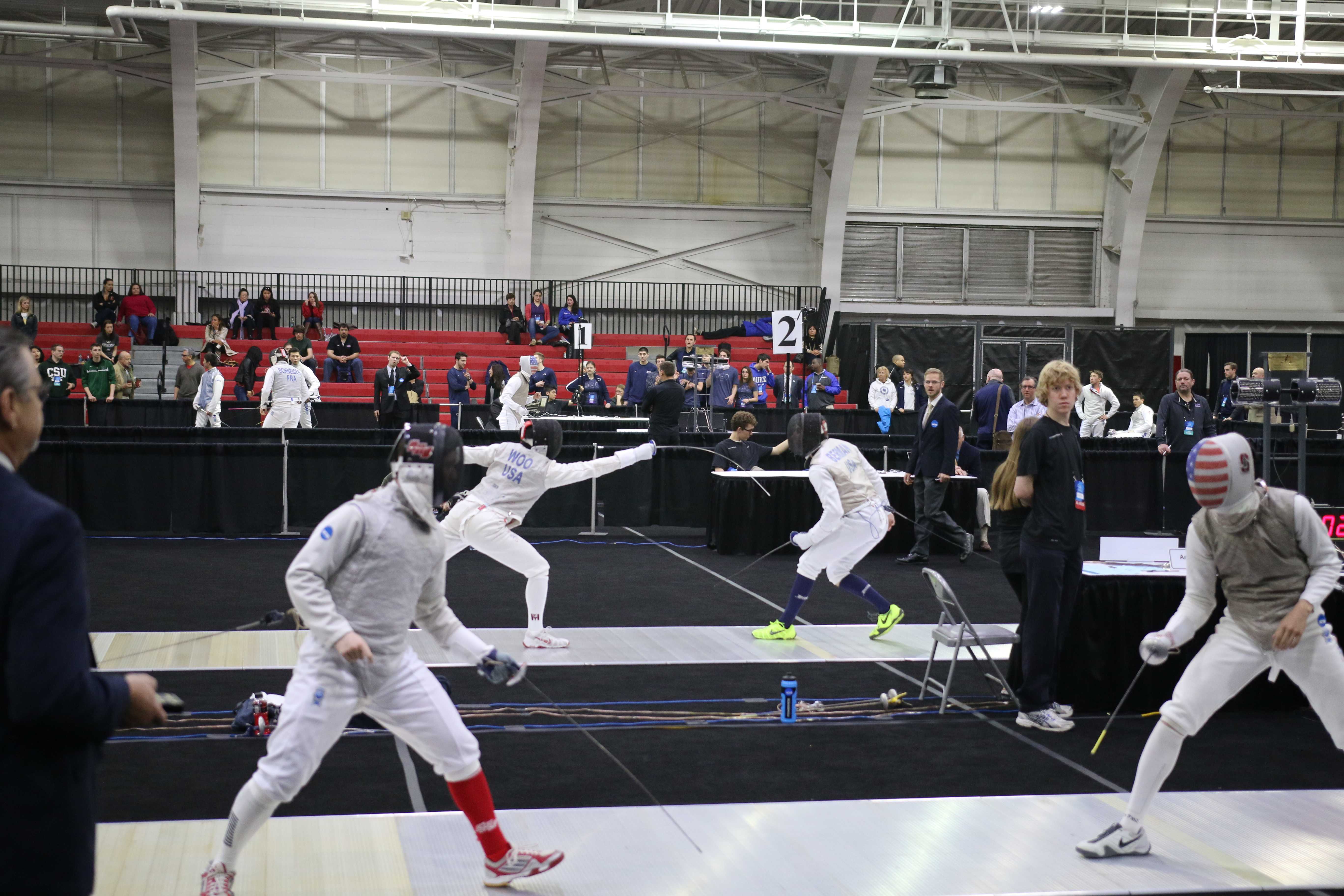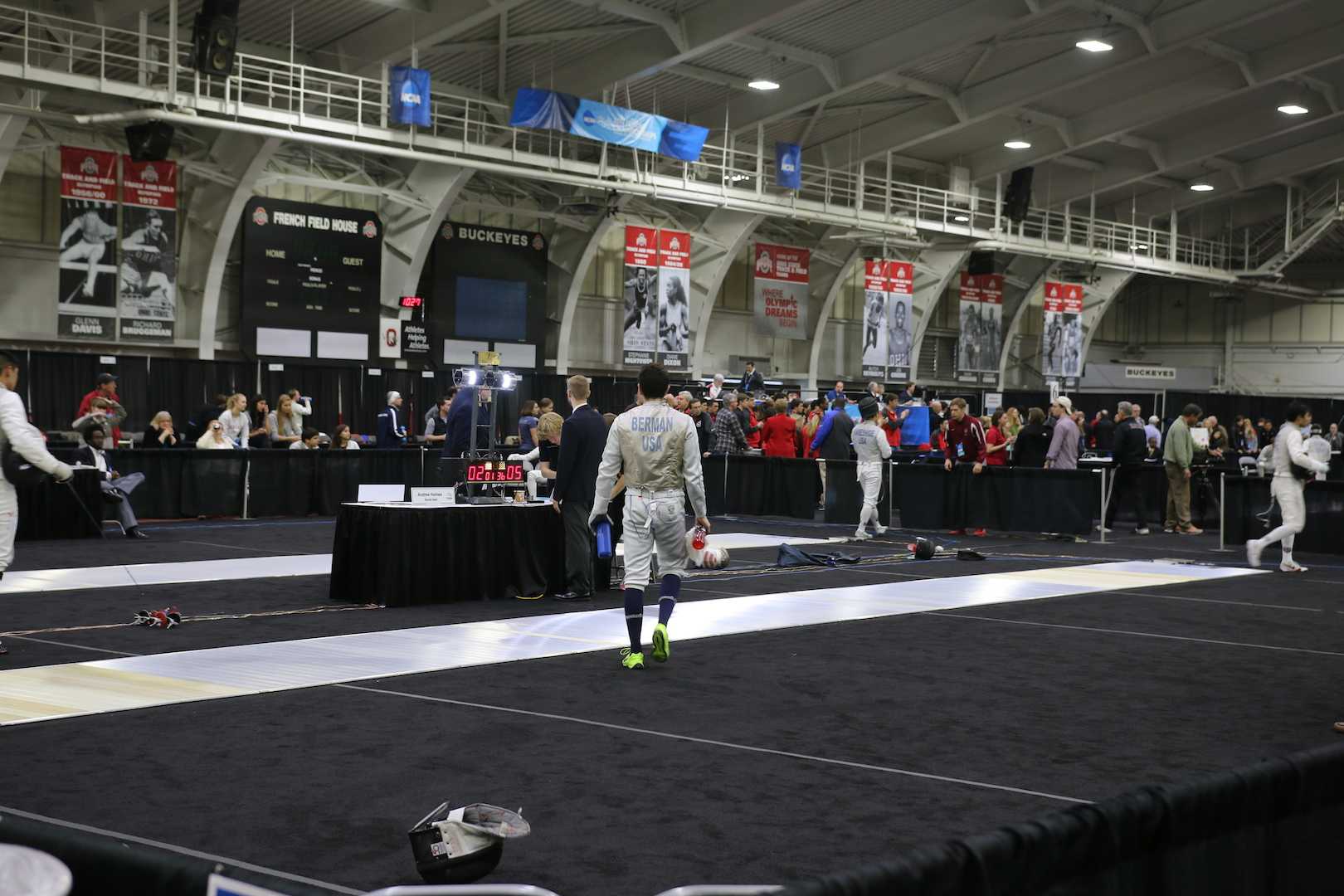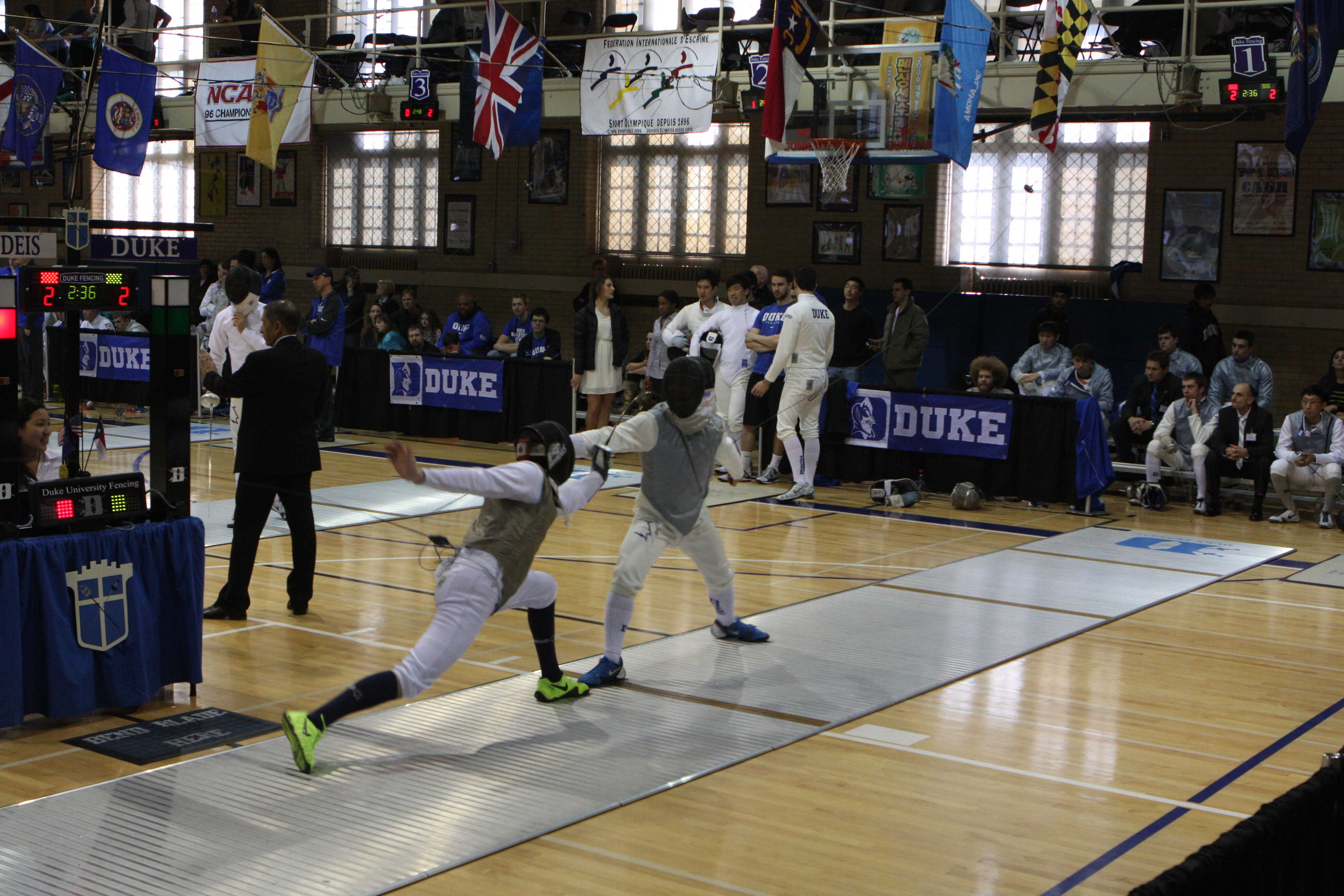
Noah Berman, Paly class of 2011, began fencing at the age of 10 after a push from his parents and a family friend. After the first day of fencing, Berman hated it, and vowed to never go back, according to Berman. After some convincing from his parents to try it again, Berman returned to the strip. “After the second time, I was hooked and have never looked back,” Berman said. He now attends Brandeis University, where he is on the fencing team, and recently qualified for his first NCAA championships tournament in the Men’s Foil category. Click here to learn about the rules and basics of fencing.
The Paly Voice caught up with Berman to find out more about his fencing experiences.

The Paly Voice: What team did you fence for in high school?
Noah Berman: There are very few high schools on the West Coast that have fencing teams, so I fenced at Cardinal Fencing Club. This club is located at Stanford and has the same coaches as Stanford’s NCAA team. My coach is Valeriy Naulo, the assistant men’s foil coach, which is the weapon I fence. He has been with me since the beginning, and I think he is the main reason I am as good as I am today.
TPV:Why did you decide to fence in college?
NB: I love fencing, and when I was applying to university, it never crossed my mind that I would not be fencing. Every school I applied to had an NCAA varsity fencing program.

TPV: How did your season go this year?
NB: I actually just ended my season a few weeks ago. The fencing season may be the longest season of any college sport. It goes from October to mid-late March depending on how you do. This year I made it to the NCAA championships which were held at Ohio State. It was great honor to be one of the top 24 fencers in the country, and validates everything that I have been working on these past 11 years.
TPV: What has been your favorite moment and/or biggest accomplishment in your fencing career?
NB: My biggest accomplishment in my fencing career is undoubtedly going to the NCAA championships.
TPV: What was it like to compete in the NCAA championship?
NB: The championships were so amazing because of the attention to detail that was placed on them. Everything was run smoothly. There were top notch referees from around the country who were flown in. This is also such a great tournament because there will never be another time where I get to fence 23 other people at the same time who are at such a high caliber in terms of skill.
TPV: What are the major differences between high school and collegiate fencing?
NB: Fencing not in college is composed of a pool round where you fence six other people to five touches [when the tip of one fencer’s weapon touches the target area of the opponent]. After that, you are placed in a direct elimination bracket just like March Madness where you get a seed and need to win to move on. In the DE [direct elimination] you fence to 15 touches.
College is different, because there are no 15 point bouts. At each tournament, you fence multiple schools and you fence three to five opponents from each school.
TPV: Do you have any advice for current Paly or high school athletes?
NB: Make sure that you are doing a sport that you love. When I was growing up, a stick was always a sword to me, and I think that is one of the main reasons I have done so well in my fencing career. Just as with anything else in life, if you are not fully committed to your sport, you are never going to reach your full potential.

TPV: Where do you see your fencing career headed?
NB: Unfortunately after next year, my fencing career will most likely be over for a long while. There is no professional fencing unless you are an Olympian, and even then it is hard to make a living in the US. I will always love the sport, and it will forever hold a special place in my heart.
In February, Berman dueled an opponent from Duke at the Duke Home Meet. Watch him in action.

